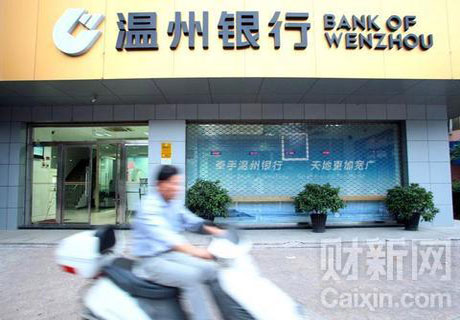Experimental financial reforms
- By Yi Xianrong
 0 Comment(s)
0 Comment(s) Print
Print E-mail China Daily, November 27, 2012
E-mail China Daily, November 27, 2012

On the basis of the State Council's approval for comprehensive financial reforms in Wenzhou and a targeted regulation jointly issued by the People's Bank of China and another eight State departments, the Zhejiang provincial government published details of the reforms on Friday, which drew extensive attention from home and abroad.
The move came after an underground banking crisis erupted in Wenzhou in September last year. Due to concerns that the crisis might spread to the country's normal financial system and perhaps trigger broader financial risk, the central government immediately gave the green light to launch experimental financial reforms.
The specific reforms so far revealed show that the goals include easing the financing difficulties of small and medium-sized enterprises and increasing domestic and overseas investment channels for private capital. However, the reforms should have a wider range. The financing difficulties facing SMEs do not exist in Wenzhou alone; and while there are already overseas investment channels for the overflowing local private capital, even mature channels in developed financial markets can hardly satisfy all needs of individual investors.
A key target of the financial reforms in Wenzhou should be to bring its booming underground financial sector, which has grown particularly rampant in recent years, into the open and then onto legal and normal operating tracks.
With a high degree of openness to the outside and the success of its export-driven economic model, Wenzhou has taken the lead in capital and wealth accumulation. Such an environment has resulted in the fully fledged development of small and medium-sized private enterprises, which account for 96 percent of the city's industrial enterprises. Against this backdrop, the private credit market has flourished. Surveys indicate that about 90 percent of households and enterprises in Wenzhou have participated in non-governmental financing. A decade ago, around 90 percent of private financing was targeted at the real economy, but nearly 70 percent of it has flown to the housing market or unlicensed credit in recent years. The interest rates for private credit can be up to 100 times higher than official lending interest rates.
The flow of a large amount of private capital to the housing market resulted in Wenzhou's housing bubble expanding to a dangerous extent. With contractions in external demand and the enormous changes that have occurred in the domestic financial situation in 2010, Wenzhou's bulging housing bubble, which was founded on the booming underground credit market, finally burst.
Wenzhou's rampant underground credit market has not only resulted in the collapse of its underground financial bubble, it has also had a severe impact on the real economy. Much worse, the underground financial crisis now runs the risk of being transmitted to the official financial system. It poses a serious threat to the financial markets in other regions and could even trigger a systematic risk to the whole national financial system if it is not checked.
Wenzhou's experimental financial reforms could legalize the city's underground financial sector, permit the registration of its private credit agencies as legitimate ones that can engage in private lending, and open up more domestic and overseas channels for investment. Legalizing Wenzhou's underground credit agencies and allowing their credit transactions under the guidelines of government policies will help ease to a large extent the financing difficulties local SMEs now face.
However, to register as a private lending agency, private capital has to undertake comparatively high financial risks. In the absence of a proportional risk pricing power, the majority of private capital will have little willingness to enter the market, as indicated by the establishment of only 28 small-amount lenders by the end of June, far less than the 100 the local government plans to set up by the end of 2013. The reluctance to set up such private lenders has directly caused a large portion of nongovernmental funds to remain outside the government's financial monitoring.
With the financial reforms the government can also explore the establishment of more financial markets, institutions and products to increase investment channels for the enormous amount of underground capital that exists. However, at a time when a unified national financial market has not yet been established, local financial markets, institutions and products like the ones Wenzhou is attempting to set up lack enough attractiveness for private investment.
The author is a columnist with China.org.cn. For more information please visit: http://www.ccgp-fushun.com/opinion/yixianrong.htm





